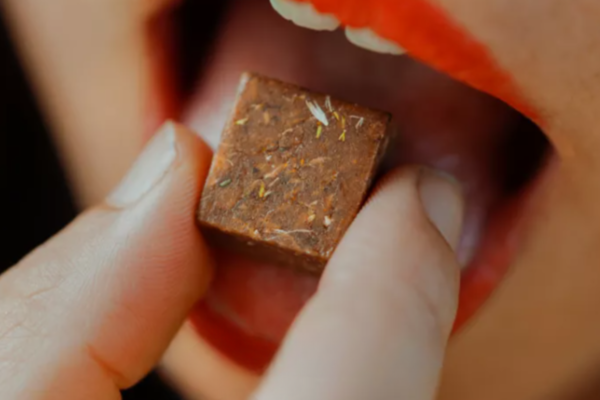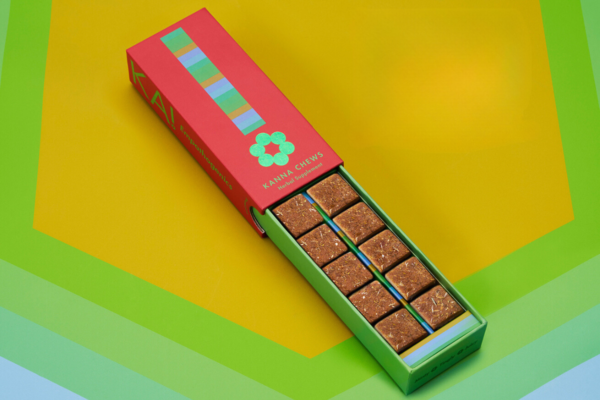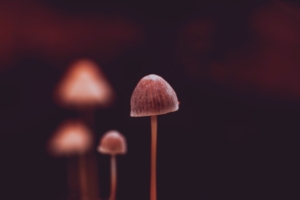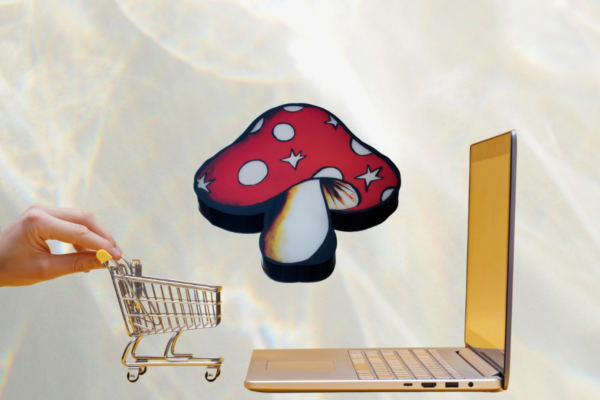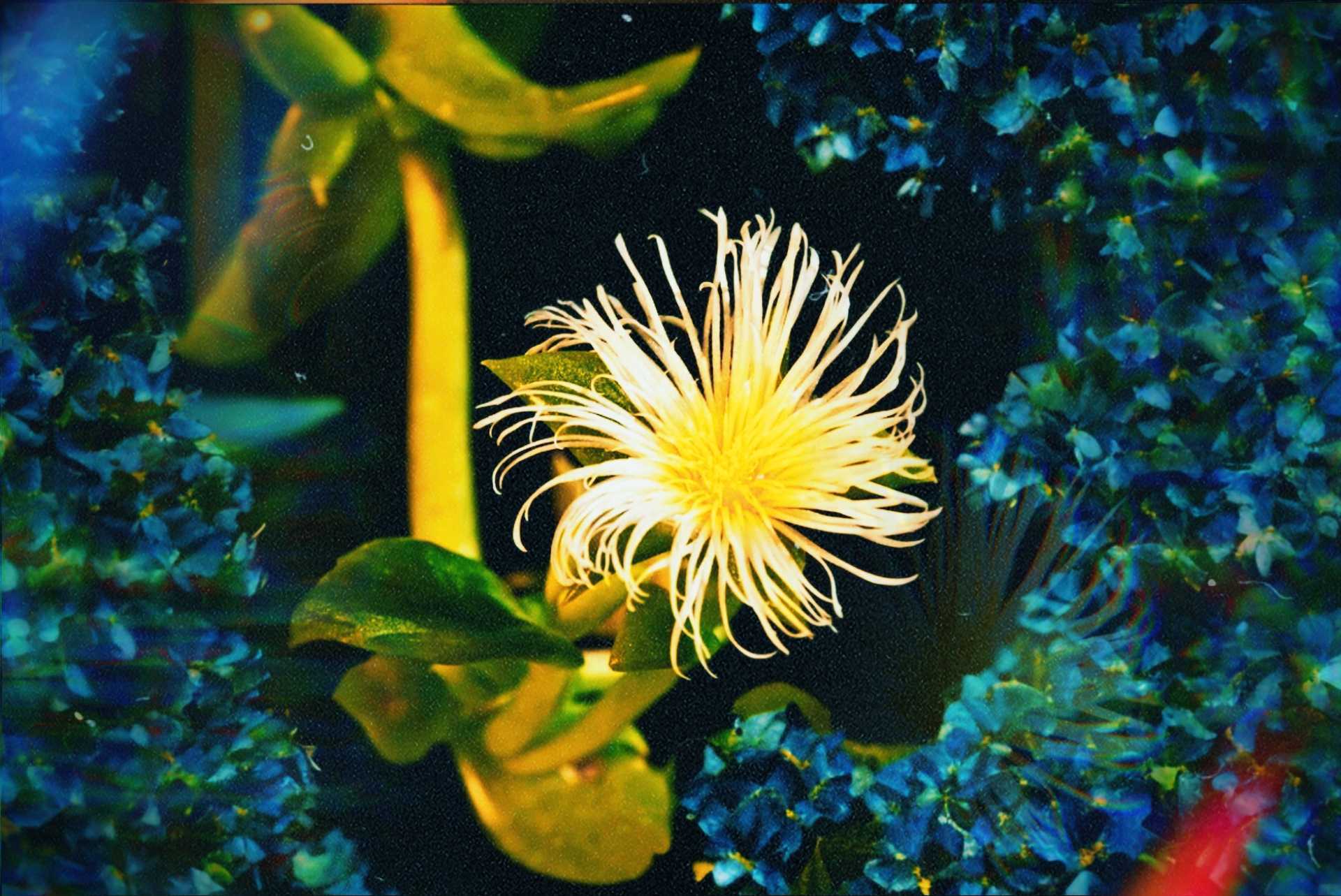
Kanna, also known as Channa or Kougoed, is a plant native to South Africa that has been used for centuries as a traditional medicine for various ailments. Its scientific name is Sceletium tortuosum, and it belongs to the succulent family Aizoaceae. Kanna has gained popularity in recent years as a legal and non-psychedelic alternative to traditional psychedelics for anxiety and stress relief. It’s also a powerful heart-opening plant used in shamanic ceremonies to produce profound feelings of love, connection, and oneness. In this article, we will explore how kanna has been a plant ally for the wellbeing of humans for millennia, and the science behind Kanna and its potential benefits for mental health.
The Indigenous History of Kanna
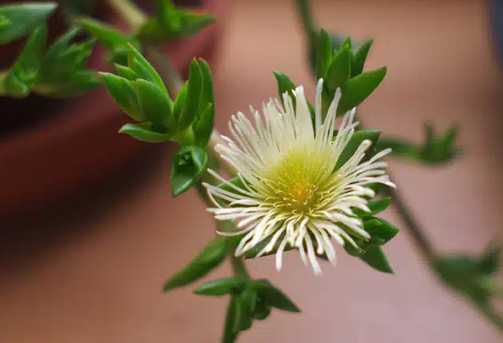
Kanna has a long and rich history of use by indigenous people in southern Africa. It is believed that the plant has been used for medicinal, societal, and spiritual purposes for thousands of years. The plant is native to the Eastern and Western Capes of South Africa, where it grows wild and is still used in traditional medicine today.
Medicinal Use
The indigenous people of southern Africa, including the pastoral Khoi Khoi and hunter-gatherer San, have a deep understanding of the medicinal properties of local plants. Kanna was one of the many plants used by these communities for various ailments, including coughs, colic, pain relief, digestive problems, mental health issues and tobacco addiction. The plant was often chewed or made into a tea, and the effects were believed to be both physical and spiritual. The San took kanna to go on multiday hunts to promote endurance, reduce stress, elevate mood and suppress hunger and thirst as they dwelled in a dry and challenging environment.
Societal and Spiritual Use

Kanna was also used by these communities for societal purposes, such as during negotiations and gatherings. It was believed that the plant had the ability to ease tension and promote feelings of peace and harmony. It was known to be a powerful heart-opener that engendered emotional openness and empathy. Kanna was also used as a recreational substance during social events, dances and celebrations.
In addition to its medicinal and societal uses, Kanna was used for spiritual purposes. The San people, in particular, have a deep spiritual connection to the land and its natural resources. Kanna was considered a sacred plant believed to possess the ability to connect individuals with their ancestors and the spirit world. It was often used in healing ceremonies and in higher doses as a tool for divination. The Eland antelope native to where the Khoisan lived was not coincidentally also called Kanna by the San, and was highly revered as representing the spirit of abundance, fertility and love.
Today, Kanna continues to be used by traditional healers in southern Africa. The plant has gained popularity in the West in recent years as a natural alternative to traditional antidepressants and anxiolytics. Nevertheless, it is important to recognize and respect the indigenous roots of Kanna and its deep cultural significance to the people of southern Africa. Their traditional wisdom helps guide us in how to best to come into relationship and work with this plant.
You may also like: What Is Changa? The Psychedelic You’ve Likely Never Heard Of (Yet)
The Benefits of Kanna and The Science Behind It
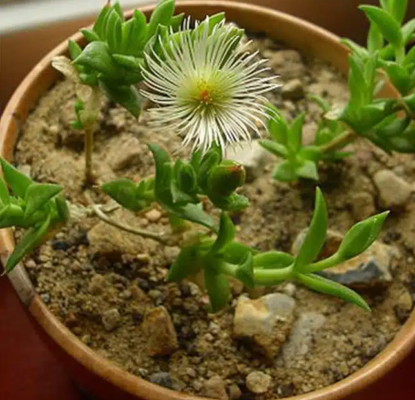
Kanna contains several psychoactive alkaloids, including mesembrine, mesembrenone, and mesembrenol. These alkaloids interact with the brain’s serotonin receptors, leading to a mood-boosting effect. Mesembrine acts as a serotonin reuptake inhibitor, meaning that it prevents the reabsorption of serotonin in the brain. Kanna also acts as a serotonin releasing agent by stimulating the protein vesicular monoamine transporter 2 (VMAT2), which helps transport neurotransmitters out of cells. This leads to an increase in the availability of serotonin, which helps regulate mood, appetite, and sleep.
A Natural Anxiolytic and Antidepressant
Studies have also shown that Kanna has anxiolytic and antidepressant effects. One study found that a Kanna extract significantly reduced anxiety and improved mood in healthy volunteers. Another study showed that Kanna extract was as effective as the antidepressant drug imipramine in treating depression in chicks. These findings suggest that Kanna can be a potential natural alternative to traditional antidepressant and anxiolytic medications.
Cognitive Improvement
Besides lifting mood and lowering anxiety, studies have demonstrated that kanna enhances focus and memory, positively supporting cognitive and emotional processes in the brain, indicating potential in aiding people with attention deficit hyperactivity disorder (ADHD). Subjects performed stronger after taking kanna when doing arithmetic calculations brain teasers, and memory tests. Other studies showed how kanna not only produced positive effects in mood and sleep, it also improved cognitive flexibility and executive function, and could be a potential treatment for early Alzheimer’s dementia.
Energy Boost & Endurance Enhancement
Kanna through its alkaloid mesmbrenone inhibits an enzyme called phosphodiesterase-4 (PDE4), allowing the body to access more energy. That is how it has what might seem like a contradictory set of benefits: both promoting calm while also providing grounded energy. It’s no wonder that the San would take Kanna on their hunts to manage stress, alleviate hunger and thirst, and sustain their energy over long distances.
Potential For Treating PTSD
Kanna may also be beneficial for individuals with post-traumatic stress disorder (PTSD). A 2019 study1 Title: The anxiolytic and anti-depressant-like effects of Mesembryanthemum tortuosum L. N.E.Br. (Aizoaceae) aqueous extract in mice: a behavioral and neurochemical assessment Journal: Journal of Ethnopharmacology Authors: Aboushanab TS, Vovk A, Zhou Y, et al. Year: 2019 DOI: 10.1016/j.jep.2019.111984 published in the Journal of Ethnopharmacology found that Kanna reduced the symptoms of PTSD in rats exposed to a traumatic event. They then administered a Kanna extract and found that it significantly reduced the symptoms of PTSD in the rats. The researchers noted that Kanna may be a useful treatment for PTSD in humans, although more research is needed.
Everyday Support For Mental Health and Physical Wellbeing
Besides being empathogenic and nootropic, Kanna is also adaptogenic in how it helps to recalibrate the brain back into balance. Kanna targets multiple neuroreceptors, stimulating receptors for GABA, opioids, cholesystokinin and melatonin. What that means is it helps calm brain activity, reduce pain, lifts mood, prevent gut inflammation and also improve sleep quality. This makes Kanna unique in comparison to other plants like cannabis that mainly target a single type of receptor to displace or block chemicals.
Research has shown that Kanna has powerful anti-inflammatory, antioxidant, antimicrobial and immunomodulatory effects which indicate its potential for delaying chronic disease progression. Kanna is also neuroprotective and non-habit-forming. It’s used to treat addiction such as alcoholism in South Africa. Kanna has few side effects that include headache and nausea but these symptoms generally subside relatively quickly.
A Legal Entheogen
One of the most significant advantages of Kanna is that it is legal and does not produce hallucinogenic effects. Unlike traditional psychedelics such as psilocybin mushrooms and LSD, Kanna is legal in most parts of the world and is not classified as a controlled substance. This makes it a safer and more accessible option for individuals looking to explore the potential benefits of psychoactive plants. In the U.S., only the state of Lousiana is an exception, where consumption of the mesembryanthemum species is prohibited.
Kanna is also considered safe and well-tolerated. A study published in the Journal of Ethnopharmacology found that Kanna had no adverse effects on liver or kidney function and did not affect blood pressure or heart rate. Another study found that Kanna extract did not cause any significant side effects when given to healthy volunteers. However, it is important to note that more research is needed to determine the long-term safety of Kanna use.
While Kanna is generally considered safe, it may interact with certain medications, including antidepressants and antipsychotics. Kanna’s main contraindication is with selective serotonin reuptake inhibitors (SSRIs), monoamine oxidase inhibitors (MAOIs), serotonin-norepinephrine reuptake inhibitors (SNRIs) and central nervous system (CNS) depressants. Individuals taking these and other medications should consult with their healthcare provider before taking Kanna.
What Ways Can You Take Kanna?
There are several ways to consume Kanna, including chewing its dried root, smoking the dried plant, or taking an extract in capsule or powder form. The effects of Kanna can be felt within minutes of ingestion and can last for several hours.
KA! Empathogenics offers Kanna Chews that pay homage to Kanna’s common name ‘Kougoed’ which means ‘something to chew’.
“We wanted to create Kanna supplements that have a connection to how the indigenous Khoi Khoi and San traditionally used it”, says KA! Empathogenics founder and CEO Stephanie Wang. The company sources kanna from suppliers that directly share profit with the Khoisan. Wang continues “Our mission is to restore full-spectrum aliveness for all human beings, and to do so through this amazing life-giving plant Kanna.”
KA! Empathogenics’ Kanna Chews are scientifically crafted with a patent-pending formulation, and are handmade without sugar, artificial flavors, stimulants or preservatives. They also contain other synergistic plants that enhance the benefit of Kanna such as homeostasis-promoting snow lotus and antimicrobial acmella that strengthen immunity and support overall health. Acmella stimulates salivary glands to improve absorption and provides an enlivening tingle when you chew. KA! also just launched its new Kanna Tincture in June.
When asked what motivated Wang to launch KA! Empathogenics, she says, “I first met Kanna sitting in a shamanic ceremony ten years ago, and I had never felt such a profound feeling of love and connectedness in my life. It was tremendously healing, and I wanted to make this accessible for everyone. It’s what the world needs more than ever.”
What Is the Ideal Kanna Dose and How Long Does It Last?
Kanna products on the market have dosages that range from 15mg to 50mg of kanna per dose, anything less than 5mg is closer to a microdose. Ceremonial doses can range between 90 mg to hundreds of milligrams and are recommended to be taken only in the presence of a qualified facilitator or shaman. It is also important to not just rely on the number of milligrams as a gauge of strength. Quality and potency varies depending on alkaloid content and sourcing which also need to be taken into account.
In general, sublinguals like tinctures have a more immediate effect, while capsules take about 30 to 60 minutes to produce a felt effect that can last hours longer. What’s interesting is that chews are an effective way to have the best of both worlds since chewing leads to greater bioavailability as bioactive ingredients are absorbed directly through the mucosal membrane in the mouth. This makes it act like a sublingual and benefits can be felt immediately in 5 to 10 minutes. The longer you have the chew in your mouth before swallowing the more potently and more quickly you are able to feel the effect. Chews have more mass than a tincture, so you are able to absorb 100% of the plants and their phytochemicals. This means chews have a more enduring effect that can last all day, while the felt effect of a tincture is more short-lived between 1 to 2 hours, even though the initial hit can be stronger.
What Is The Best Way To Experience Kanna?
KA! Empathogenics’ Wang recommends first trying Kanna and KA! for a few days at different times and in various settings to feel how your body responds. Every person’s genetic make-up is unique and how Kanna works with each individual will be distinct. After the initial trial, she recommends taking KA! consistently for a month to be able to feel fully the many ways it supports wellbeing, and then stopping for a week to take note of what has shifted. A recent study shows that serotonin goes to lower histamine and inflammation first before lifting mood, so taking it consistently over time is helpful for being able to assess how Kanna is actually affecting you. Notice the difference in perception, temperament, the way you approach and relate to others. Kanna is heart medicine that is gentle, but its cumulative effects over time can be profound. It has the ability to support you in being more present, open and connected, so you can be the best version of yourself.
Here are some great ways of when to include Kanna/KA! in your daily life:
- First thing in the morning to set the tone of relaxed alertness for the day
- 15 minutes before meditation or yoga to center and ground
- Take it instead of alcohol when you go out with friends to ease social anxiety and have a change of state (kanna is referred to as “onse droë drank” meaning “our dry drink” in Afrikaans),
- Share it with your partner for intimacy and deeper connection
- Before working out or playing sports to increase stamina.
Kanna is a unique and promising plant with potential benefits for mental health, particularly for anxiety, depression, and focus. Its psychoactive alkaloids interact with the brain’s serotonin receptors, leading to a mood-boosting effect. Additionally, Kanna also has great potential to support emotional health and overall wellbeing, while teaching us to hold space for our own healing. While more research is needed to more fully understand its effects, Kanna is generally considered safe and well-tolerated, as well as backed by centuries of indigenous use, making it a safer and more accessible option for individuals looking to explore the potential benefits of psychoactive plants, and those searching to find non-pharmaceutical solutions to mental health issues.
Use code PSYCHSPOT for 10% off your first KA! purchase
You may also like: 3 Libido-Boosting, Adaptogenic Treats to Put You in the Mood
Important Medical and FDA Disclaimers
Any content in this article and the KA! Empathogenics website is for educational and product information purposes only and is not intended as a substitute for medical advice. Information and statements regarding herbal supplements in this article and on the website have not been evaluated by the Food and Drug Administration and are not intended to diagnose, treat, cure, or prevent any disease.
Do not use any KA! products in conjunction with Monoamine Oxidase Inhibitors (MAOIs), Selective Serotonin Reuptake Inhibitors (SSRIs) or Serotonin-Norepinephrine Reuptake inhibitors (SNRIs).
Avoid KA! products while pregnant or nursing. Keep all products out of the reach of children.
Consult your healthcare provider before use or buy Kanna if you have a medical condition or if you are taking any prescription medications. Never disregard professional medical advice or delay in seeking professional advice because of something you have read in this article or on the website. You should always speak with your physician or other healthcare professional before taking any medication or nutritional, herbal or homeopathic supplement.
